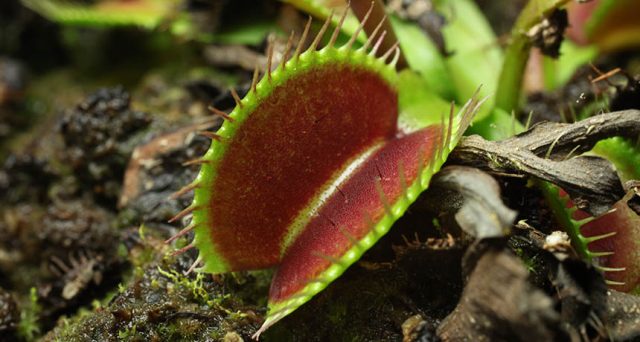MI weekly selection #180

Venus flytraps’ predatory ways may have roots in defense
The genes that allow Venus flytraps to be carnivores may come from defensive mechanisms carried over from their non-insect-eating ancestors. Researchers found that gene expression patterns shift radically when prey steps into the plants’ traps, signaling digestive enzymes along the same protein paths used to help the plants heal wounds. Scientists suspect the Venus flytraps repurposed defense mechanisms to get food when soil lacked nutrients.
Quake swarms point to magma recharge at Mount St. Helens
Seismic monitors have detected swarms of earthquakes underneath Mount St. Helens in Washington state, indicating that the volcano may be recharging, with new magma working its way up. Other earthquake swarms were detected in 2012 and 2014, but researchers say the current shakers are the most robust. Scientists note, however, that there are no other indications that the volcano might be getting ready to erupt.
Astronomers find strange starspot patterns on nearby star
A nearby star, 15 times larger than the sun, has an array of starspots randomly dotting its surface, according to astronomers who’ve observed it from 180 light-years away. Scientists used six telescopes in the Center for High Angular Resolution Astronomy’s array to study the huge zeta Andromedae.
Fossil discovery sheds light on primate evolution mystery
The discovery of fossils of six new species of primates that lived in Asia about 34 million years ago may help explain the mystery of why human evolution took place in Africa while primate evolution is believed to have begun in Asia. “This is a really good example of how evolution on two different continents at exactly the same time yielded almost exactly opposite results,” said study co-author K. Christopher Beard.
Some Sierra Leone Ebola survivors developed blindness later
One of every five Ebola survivors in Sierra Leone were found to have suffered severe or complete vision loss several weeks after recovering from the virus.